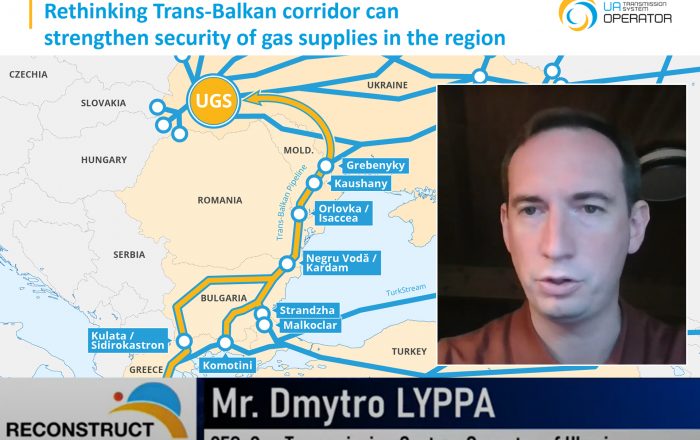Dmytro Lyppa, General Director of the GTS Operator of Ukraine, took part in the Forum “The Reconstruction of Ukraine: A Strategic Role for Romania” held on December 13-14 in Sinaia (Romania). One of the panels of the event, organized by the New Strategy Center think tank, was devoted to Black Sea natural gas reserves and economic opportunities arising from its production.
During his presentation, Dmytro Lyppa analysed the current situation with the supply of natural gas to the European market and presented his estimate of changes in its structure resulting from the policy of diversification implemented by Southeast European countries. Hence, the GTSOU’s CEO spoke about the technical and commercial advantages of Ukraine’s gas transmission system, as well as outlined the role that its Operator can play in the context of mentioned changes, particularly taking into account gas production development in the Black Sea. According to him, the focal point, when it comes to the latter issue, is the Trans-Balkan Corridor that can ensure gas transmission from the Black Sea shores to the countries of Central and Eastern Europe, as well as its transportation for storage in Ukrainian gas storage facilities that are Europe’s largest.
“The Trans-Balkan Corridor is a good opportunity for the region to rethink the logistics of energy resources transportation given the development of LNG capacities in the region, as well as the prospects of natural gas production at the Neptun Deep field. As a result of these factors, the natural gas market in the region will be developing rapidly, and the GTSOU’s role will consist in providing capacities for the transportation of resources to countries that are still dependent on russian gas, in particular to Austria and Slovakia. The route via Ukraine already exists and does not require large investments. Companies engaged in gas production and traders will be able to use it to deliver gas to countries of demand,” Dmytro Lyppa emphasised.
Finally, the GTSOU’s CEO spoke about the capacities of Ukraine’s GTS in the context of the alternative energy development in the region. Ukraine’s south is a particularly promising place for the development of alternative energy sources like hydrogen, which creates prospects for cross-border cooperation in the energy sector. An example of such cooperation can be the transportation of hydrogen from the hydrogen valley located in the south of Odesa oblast for its use at a metallurgical plant located in the Romanian city of Galati.
